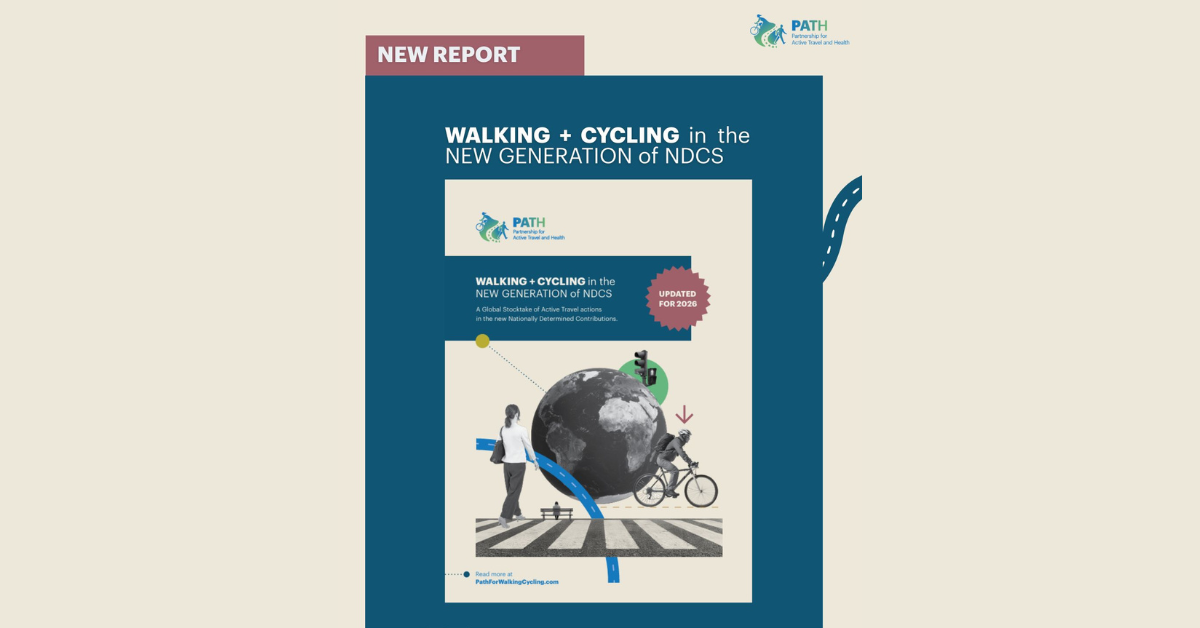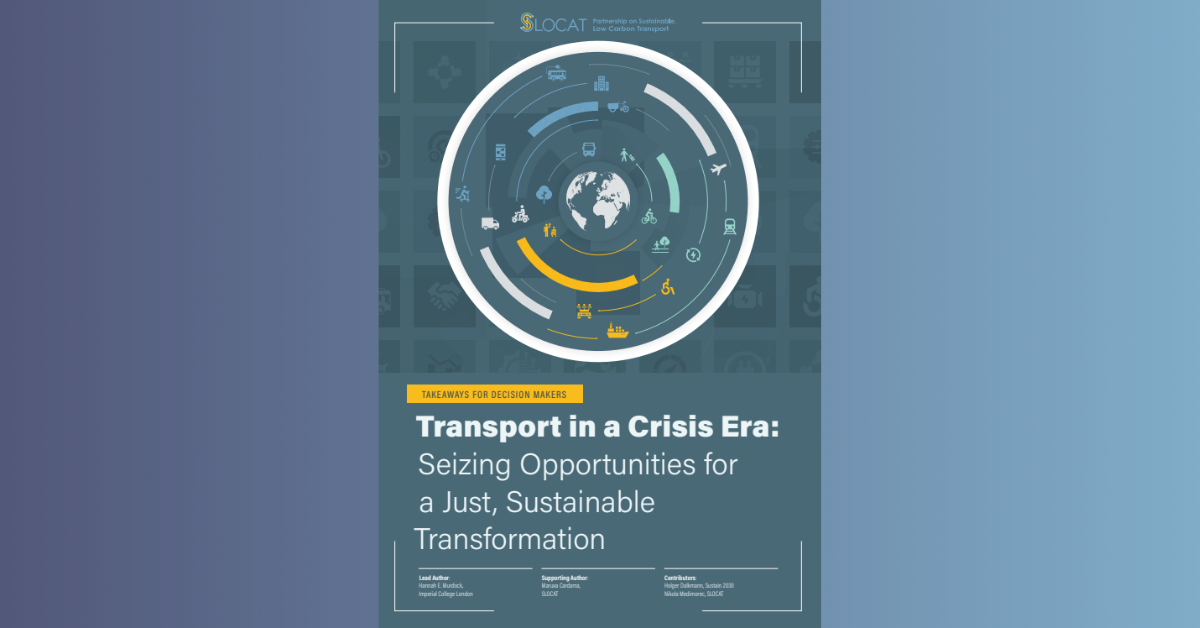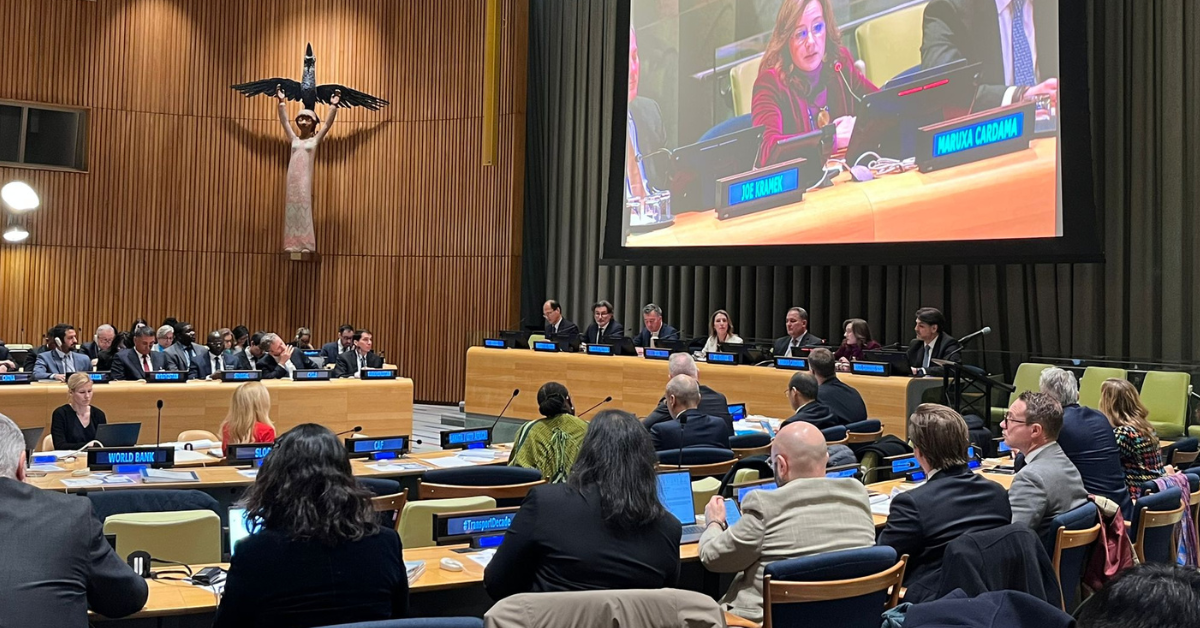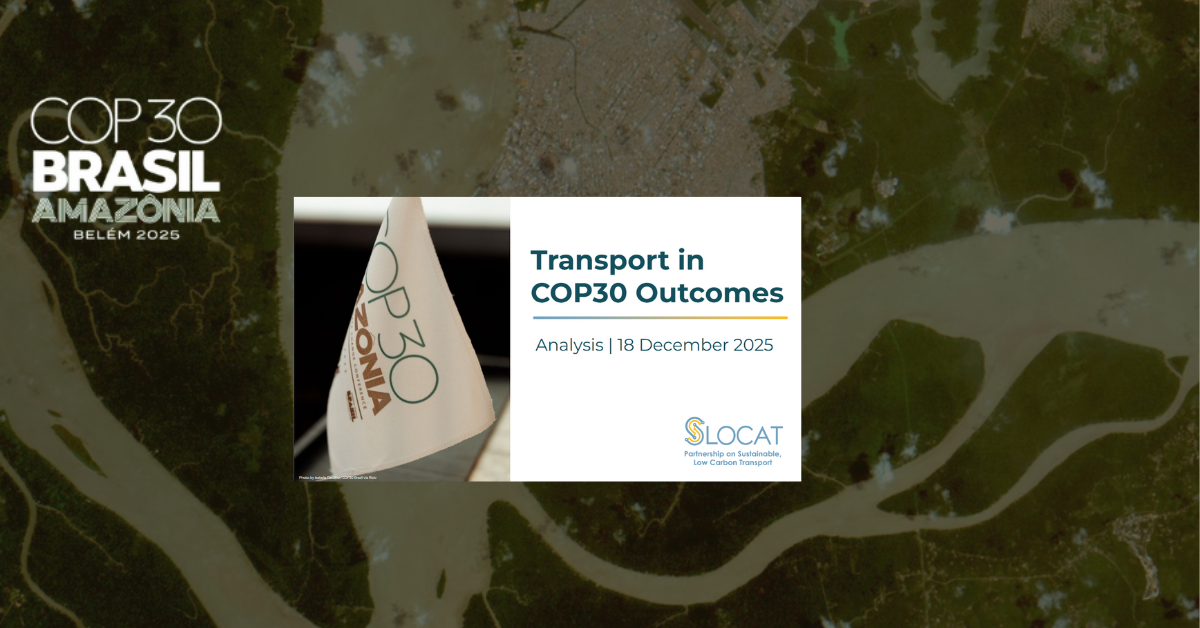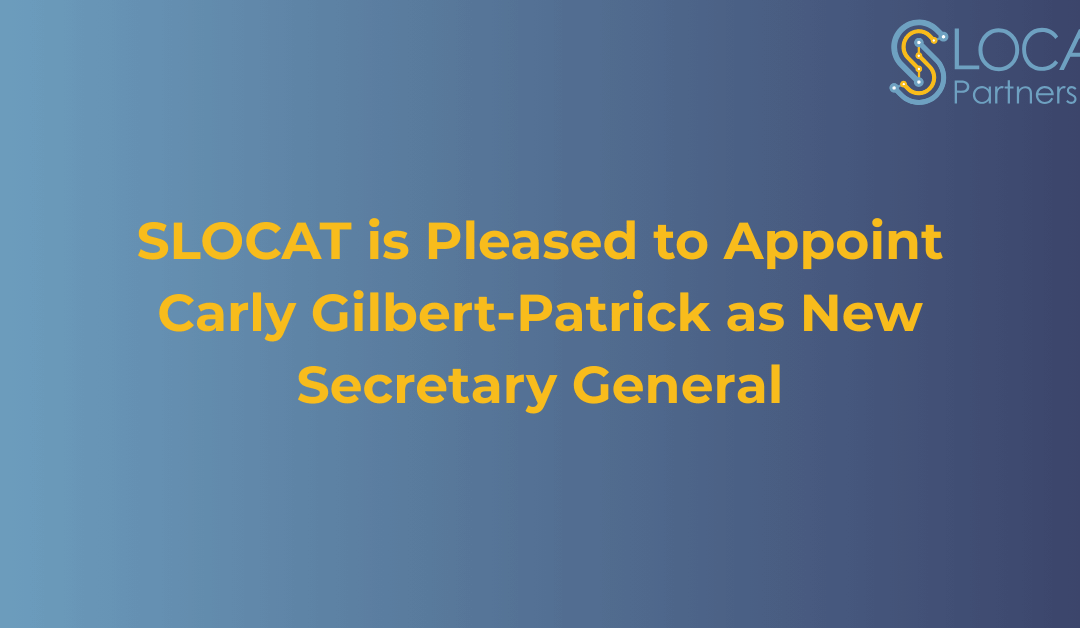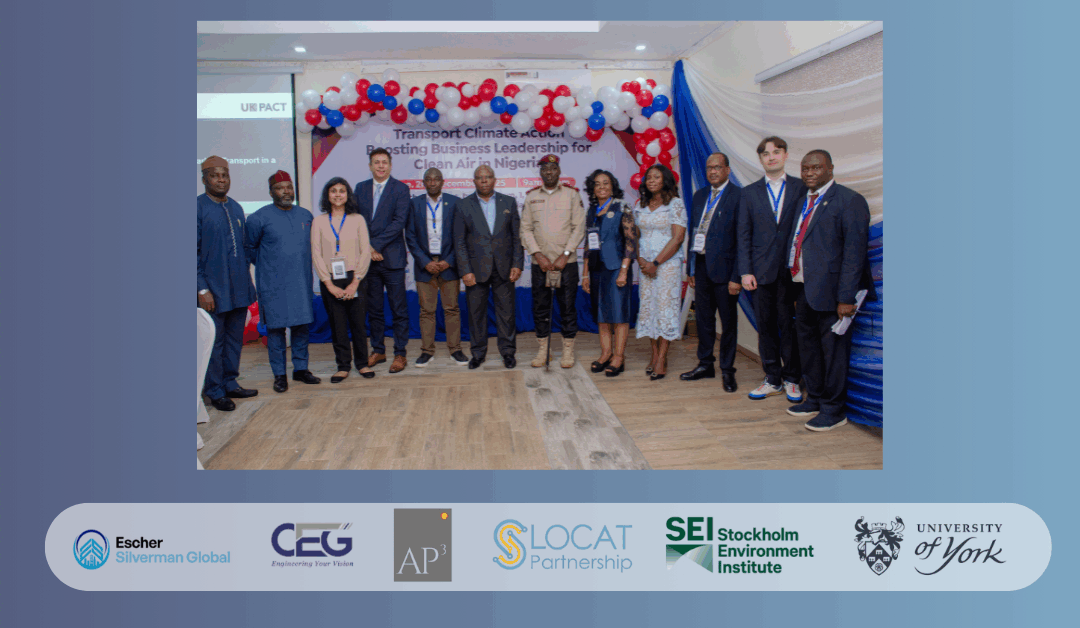As the global community urgently seeks pathways to mitigate climate change, the “Baku to Belém Roadmap to 1.3 Trillion” aims to scale up climate finance for developing countries and emerges as a critical initiative to accelerate the shift towards sustainable, low carbon and resilient transport. Set to be shaped through consultations, this Roadmap provides a clear opportunity to advance transport systems transformation for people and the planet. It aims not only to drive substantial investments in greenhouse gas (GHG) emission reductions, but also to enhance the resilience of vulnerable regions against increasingly frequent climate impacts.
In 2023, transport became the fastest-growing source of CO₂ emissions globally, representing approximately 22% of total emissions. Although it currently receives around 29% of overall climate finance, the reality is that transport faces the largest investment gap among all sectors. Studies have shown that transitioning global transport systems to cleaner and more sustainable modes will require an unprecedented $2.7 trillion annually up to 2050, over seven times the amount currently spent.
This profound investment shortfall poses an even greater threat when considering the urgent need for developing climate-resilient transport infrastructure. For instance, existing financial projections largely overlook adaptation needs such as climate-proofing transport infrastructure to withstand floods, storms, and other natural hazards. Currently, natural disasters cause approximately $15 billion annually in direct damages to transport systems worldwide, with low- and middle-income countries (LMICs) shouldering around $8 billion of these costs. For LMICs, the financial burden is particularly severe relative to their economic capacity.
The situation in LMICs is further exacerbated by numerous structural barriers, including economic instability, political uncertainty, high borrowing costs, increasing debt burdens, and insufficient technical expertise for developing bankable transport projects. Presently, LMICs only secure about $15 billion per year in transport-related climate financing, only 2.7% of the $550 billion annually required until 2050. Without immediate action, Africa and Asia alone could experience significant gaps in transport infrastructure funding, reaching approximately $0.8 trillion and $1.6 trillion respectively by 2040. Given that many transport systems in these regions are still developing, this decade presents a crucial window of opportunity to avoid future costly retrofits and ensure efficient, sustainable investments today.
In order to address these urgent needs effectively, SLOCAT has outlined four key recommendations to guide the development of the Roadmap:
- Dedicated Climate Finance for Transport Mitigation and Adaptation: The Baku to Belém Roadmap must ensure that climate finance explicitly addresses both mitigation and adaptation needs in transport. Stable and predictable funding will help LMICs plan and build sustainable transport infrastructure while avoiding long-term financial risks associated with stranded or obsolete assets.
- Inclusive Criteria Setting via Multi-Stakeholder Engagement: To make sure finance reaches projects that effectively reduce emissions and bolster climate resilience, eligibility criteria should be developed through active involvement of a diverse range of stakeholders, including sustainable transport experts. This approach guarantees transparency, robust standards, and meaningful impacts on climate action.
- Transparent and Robust Accounting of Emission Reductions: Securing clear and credible mechanisms for the calculation of emission reductions achieved through sustainable transport initiatives is crucial. Without these, there is a risk that sustainable projects might lose out on necessary funding. Reliable accounting systems help ensure efficient distribution of climate finance and encourage genuine low-carbon transport investments.
- Embedding Principles of Just Transition: It is essential to incorporate the International Labour Organization’s (ILO) principles on just transition into the Baku to Belém Roadmap. This ensures that climate finance strategies and related policy decisions also address socio-economic impacts on workers and communities. Engaging workers and stakeholders through structured dialogue and clear transition plans will strengthen equity and support the broader sustainability of climate actions.
To practically enable these recommendations, SLOCAT provides several valuable resources:
- Policy Guide to Improving Access to Climate Finance for Transport (2024): This comprehensive guide, in collaboration with UK funded HVTP programme, supports project developers in LMICs by outlining how to overcome common barriers, including financial, institutional, informational, and technical obstacles, through practical steps, case studies, and capacity-building resources.
- SLOCAT Transport, Climate and Sustainability Global Status Report (3rd Edition, 2023): This report emphasises the critical role of strategic financing in developing efficient and sustainable transport systems, which are foundational for economic prosperity, connectivity, and improved living standards.
- SLOCAT NDCs Library: An extensive and continuously updated collection of resources specifically designed by specialised transport organisations to help countries integrate robust transport-related commitments into their Nationally Determined Contributions (NDCs), thus ensuring ambitious and achievable climate targets.
As consultations on the Baku to Belém Roadmap advance, the global community must prioritise transparent, targeted, and inclusive financial mechanisms. By securing and appropriately directing climate finance towards sustainable transport, we can effectively address the climate crisis, foster resilience, and build a future that is environmentally sustainable, socially equitable, and economically prosperous for all. SLOCAT remains committed to amplifying the voice of the transport sector in these critical conversations and facilitating actionable change at this pivotal moment for global climate action.










